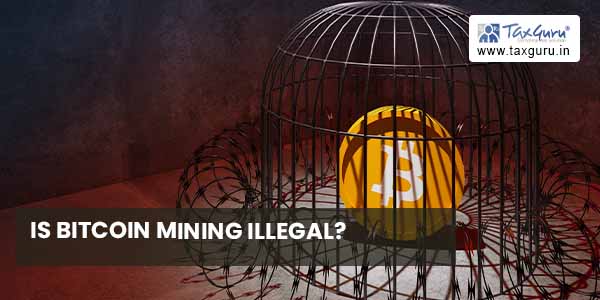#AD
When Satoshi Nakamoto launched Bitcoin in 2009, there was much hope in the cryptocurrency as a better alternative to the centralized financial system. In less than 15 years, Bitcoin has become a significant force, with over 109 million users globally. But the legality of Bitcoin remains a controversial matter.
Before delving into the legality of Bitcoin mining, online trading can be very lucrative, primarily if you use trading platforms like bitcoin360 ai amazon. There, you can even trade in cryptocurrencies like Bitcoin.
Bitcoin mining is the process of confirming Bitcoin transactions and generating new Bitcoin. As such, it is a necessary process that ensures Bitcoin remains relevant. Without Bitcoin mining, there would be no new Bitcoins. It would also be impossible to verify every Bitcoin transaction.
Bitcoin mining is legal in some countries but illegal in others. Often, when a government bans Bitcoin, it also bans Bitcoin mining. And this was the case with China when it banned all cryptocurrencies, including Bitcoin, in 2021. That ban also meant that Bitcoin mining in the country was now illegal.
Where is Bitcoin Mining Legal?
Bitcoin mining is legal in most countries. Bitcoin mining is legal in countries like the US, Canada, Russia, and the UK. However, it is essential to understand that the legality of Bitcoin mining varies from country to country based on the regulatory environment. While in most countries where Bitcoin is legal, there are only a few regulations or none, some adopt more extensive regulations.
Where is Bitcoin Mining Illegal?
A few countries have banned Bitcoin and its mining. The most notable country is China. Other countries that have banned Bitcoin mining are Egypt, Iran, India, Algeria, Indonesia, Colombia, and Bolivia. Nevertheless, in some of these countries, it is not just Bitcoin that is banned but even other cryptocurrencies.

The Future of Bitcoin Mining
Despite some countries imposing a ban on Bitcoin and mining, it is doubtful that more countries will take the same route. Banning Bitcoin and Bitcoin mining is not easy. Some countries have tried to do so in the past but have failed. Since Bitcoin mining is still new, no specific regulations deal with it.
Concerns about the energy consumption in Bitcoin mining may make you think more countries will ban it. On the contrary, this may even be an impetus to make it legal. Miners can help in transitioning to renewable energy. Consider a big miner setting up operations in a remote area with no power. By doing so and installing renewable energy, the miner can make it easier for the local community to get renewable energy.
Countries should make Bitcoin mining legal to stimulate investment in renewable energy. With growing concerns over greenhouse gas emissions leading to global warming, partnering with miners to speed up the transition from non-renewable to renewable energy should be in every country’s best interests.
What countries can do instead of banning Bitcoin mining is to introduce regulations. The regulations should ensure that miners operate within a legal framework and that the government will not have unfounded concerns regarding the industry. Working with miners should be the way to go rather than trying to fight them.
Conclusion
Bitcoin mining is not illegal in most countries. Only a handful of countries have banned it. But banning Bitcoin mining is not easy, meaning it will remain legal in most countries. Moreover, specific incentives for not banning Bitcoin mining include supporting investment in renewable energy. Instead of making it illegal, most countries should probably only adopt regulations.
*****
Disclaimer: Crypto products and NFTs are unregulated and can be highly risky. There may be no regulatory recourse for any loss from such transactions.
Cryptocurrency trading involves high risk, and is not suitable for all investors. Before deciding to trade cryptocurrencies, tokens or any other digital asset you should carefully consider your investment objectives, level of experience, and risk appetite. TaxGuru does not recommend that any cryptocurrency should be bought, sold, or held by you. Do conduct your own due diligence and consult your financial advisor before making any investment decisions. By the use of the above information, you agree that Author / TaxGuru is not responsible or liable in any manner for the authenticity, accuracy, completeness, errors or any kind of omissions in this piece of information for any action taken thereof.




